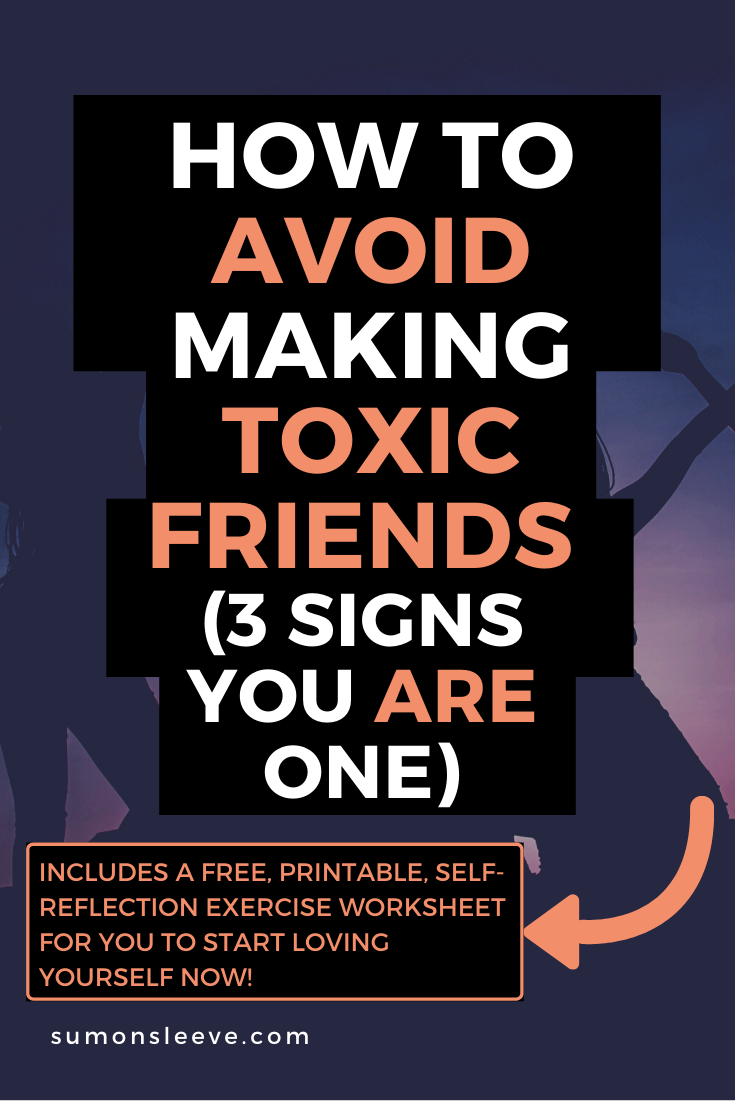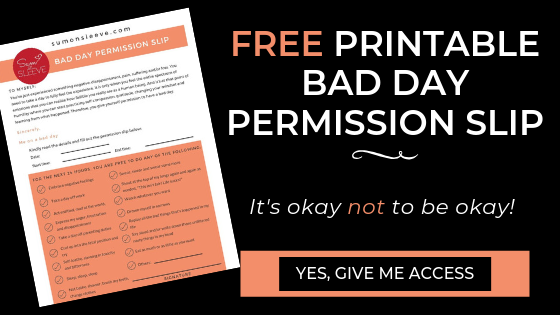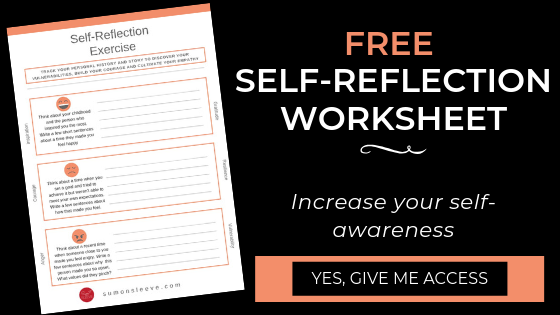
Ah, toxic girlfriends. From Clueless to Mean Girls to Gossip Girl (is it Pretty Little Liars now?), do these only appear in the teenage years?
No.
These appear through to adulthood, from college/university to the workplace to motherhood to old age (who’s a better grandma?).

Granted, a lot of that nastiness starts in high school and I think some women just never learned their lesson.
I wish my mom was able to guide me during this time but friendships and relationships weren’t exactly dinner table topics.
So as a record for my daughter (and for anyone else who values good friendships), here are some of my own lessons.
At 16, I was a
As mentioned in a previous post, in Grade 10, I got a boyfriend and became one of those girls who leaves all her friends to become the girlfriend of X.
My friends weren’t toxic. They didn’t put on a fake smile and pretend to like me while spreading rumours.
I chose good friends but I was the one who became toxic. They told me to my face that they could not hang out with me anymore because I wasn’t making them a priority. Cut and dry.
Then, after the boyfriend left, I had no one.
Pretty harsh but I’m grateful for that experience because, without it, I never would have known how to avoid being a toxic friend.
How did I manage to make friends again?
The time spent alone allowed me to self-reflect on my behaviour and discover what it means to be a good friend. And the lessons I learned changed how I make friends, how I maintain those friendships and how I end them, all the way through to motherhood.
I’m a firm believer that people who give advice should also be the people who follow it. Practice what you preach, sister!
So to quote my friend (after having spent a weekend in Whistler to celebrate my stagette):
“Katharine, that was the most drama-free stagette I’ve ever been to. Your friends are so chill. We actually all got along.”
I’m not the “perfect” friend so I have some signs that I watch in myself to avoid becoming a toxic one.

Comparing Your Friend’s Stresses To Your Own
Have you said or thought this? I know I have.
“She’s complaining about how her husband’s not making an effort with the chores? OMG that’s such a small issue!
I’ve got way bigger problems than that. At least he makes dinner for the family a couple of times a week. I’m barely able to keep my head on straight. Geez. She’s so lucky. She should be grateful. I’m the one with the problems!”
Everyone has issues.
Everyone experiences stress differently.
Everyone has a different tolerance for each type of stress.
This expectation should be the foundation of every relationship.
And if you are truly friends with someone, you would understand who they are, what issues stress them out, how they tolerate stress and why certain problems affect them more than others.
You would have compassion when listening to them, empathizing and appreciating the situation your friend is in, validating their emotions and recognizing their unique challenges.
How To Manage This Behaviour
So when I catch myself saying something (either in my head or to someone else) that minimizes my friend’s issue by comparing it to my own, I’ll do some self-reflection to understand why I’m doing that.
What is going on with me at the moment that is making me feel insecure enough to compare? How can I emotionally detach myself so that I can become objective in the conversation?
My problems are my problems.
Her problems are her problems.
Keep it simple.
Feeling Joy When Your Friend Feels Sorrow
“OMG I need to vent. You know that asshole co-worker I have who’s always trying to one-up me? Anyway, today, he told the team that my report’s too long and cumbersome.
Then he offered to shorten it into an Executive Summary. Everyone loved his idea and now he’s taking the lead on it and presenting it to the leadership team.
My boss told me to learn a thing or two from this asshole. I hate this. It’s so not fair. I worked so hard on that…”
How do you feel when a friend tells you that something unfortunate happened to them?
When they’re in pain?
When they’re suffering?
When they’re overwhelmed?
Be honest with yourself. Does your lip start to twitch? Do you take pleasure in hearing your friend’s bad news? Do you savour every detail?
Have you said or thought this deep down inside? I know I have.
“She always gets what she wants. She’s such a Little Miss Perfect but now that something bad happened to her, she’ll finally get to see what life is really like.”
It’s as though whatever bad news your friend experiences is justified. Perhaps you don’t think she deserves all the good things that she has in her life and needs a dose of humility.
But let’s be honest, you’re merely projecting your own unhappiness onto someone else. I know that’s what I’m usually doing.
There are times when we get stuck in a negative mindset because life is fucking hard. I mean talk about money issues, relationship issues, career issues, health issues and the list goes on. Take your pick!
And we get into this “woe is me” mentality where our fears and insecurities take over and nothing can fix whatever ails us. So when something shitty happens to our friend, it’s tempting to enjoy watching their pain.
How To Manage This Behaviour
So when I catch myself taking pleasure in a friend’s misfortune, I re-assess my own life and begin to practice gratitude for having a friend who can be vulnerable with me, for the opportunity to support someone through their pain and for the fact that it did not happen to me.
The shift in mindset takes practice but once it changes, I feel like a weight has been lifted off me.
Feeling Sorrow When Your Friend Feels Joy
“So you know how I’ve been busting my ass the whole year, taking shit for people and staying late almost every day? Anyway, today, my boss finally gave me that promotion I’ve been waiting for. I’m…raise…salary…deserve…entire team…myself…start…and….next month”
Do your ears begin to tune out when a friend shares some good news?
Are you silently seething about your friend’s fortune?
Do you have an underlying sense of jealousy that makes whatever good news they shared seem unfair?
Your friend got engaged.
You’re still single and the last date went nowhere.
Your friend is going on a once of a lifetime trip to Africa.
You can barely save enough for one of those Asian shopping bus tours with your mom.
Your friend’s pregnant.
You and your husband have been trying since she was single.
Your friend’s kid sleeps through the night.
You’re so sleep deprived you put eye cream on your toothbrush.
All these situations make it difficult to feel the joy that our friends are experiencing. It’s hard not to compare especially if these are things that you are struggling with.
How To Manage This Behaviour
So when I catch myself feeling that twinge of envy about my friend, I put on a wide smile and give them a warm hug. I show as much excitement as I can, asking a ton of questions and follow-up questions.
This is their moment to celebrate, not mine.
By focusing all the attention on them, enhancing the joy of their experience, it makes me forget about my own sorrows. And the excitement that I fabricated transforms into a reality and I become genuinely happy for my friend.
When I have a moment to myself, I’ll self-reflect. I’ll locate the source of my envy, acknowledge it and treat myself with compassion, reminding myself that when I feel happy for others, the happier I will be.

How To Avoid Making Toxic Friends
I purposely surround myself with women who exude compassion, humility and integrity, and those who bring their authentic selves every time we connect. I am incredibly grateful for my friends.
Look For Drama-Free Friends
When I make friends, I like to look for someone who is drama-free. What does drama-free mean?
A person who is drama-free does NOT mean someone who does not have problems or someone who is always happy or stress-free or calm. Everyone has issues.
Drama-free means someone who is completely confident and secure with themselves to express their emotions and problems in a productive way. They DO NOT project their own issues onto others by spreading rumours or gossip about them as a way to make themselves feel better.
When they talk about their friends, they come from a place of good intentions.
For instance, if they talk to you about a conflict they had with their friend, they talk about it in a mature manner. They do not bait you into trash talk especially if you are also friends with this other person. Their expected outcome of the conversation is to have their emotions validated with a sense of clarity about what happened and perhaps a plan to help bridge the gap in their friendship.
Avoid Passive Aggressive Bait Droppers
I hate passive aggressive bait droppers. WTF are those?
Let me give you an example:
“Oh did you hear about Shelly and Janice? I heard they got into a fight about Shelly’s flakiness. I think Janice totally overreacted. But maybe she’s extra sensitive because I heard her husband lost his job. Did you know that?”
“Shelly’s never been flaky to me so I don’t know what Janice is talking about. But I heard that Shelly flirted with Janice’s ex at the wedding. Did you know that?”
“So now no one is talking to Janice now except me. It’s like I’m the neutral person that everyone goes to. It’s probably because I’m so oblivious about these things. Have you heard anything? What do you think about Shelly and Janice?”
Those are the people who love being the special person who tells all the gossipy stories and knows all the ins and outs of everyone’s lives and spread that shit like napalm.
They’ll act like they don’t know anything about anyone, downplaying how connected they really are (Oh I haven’t seen so and so forever) but they actually do.
And when they start their fucking stories, they’ll bait you into talking shit about other people which in turn, fuels their fire.
Don’t become friends with these people (or become one). Trust me, I’ve been burned (another story, another time).
Avoid Flaky Friends
I think this one is a pretty obvious one and hopefully, if you’re around my age you would have learned that in your 20’s.
You make plans, they cancel last minute. You make plans again, they cancel again. Strike three and they’re out.
Don’t waste my time because I don’t have a lot of that.





